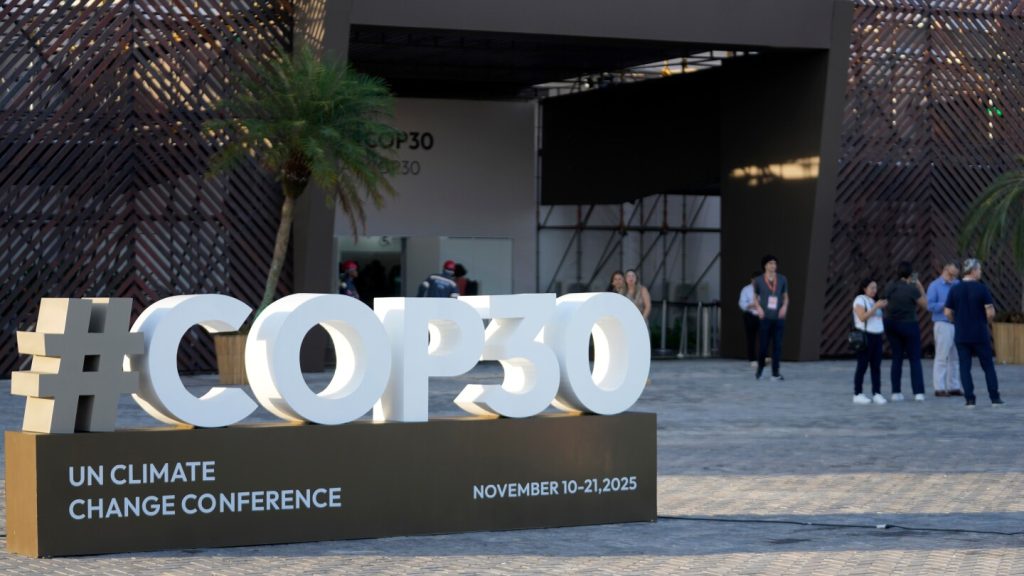Listen to the article
Global Climate Summit Begins in Amazon Gateway as World Faces Critical Environmental Crossroads
People from around the world are converging on Belem, Brazil, for the 30th United Nations climate summit (COP30), situated at the gateway to the Amazon rainforest. The conference aims to strengthen global cooperation in combating climate change, though experts warn that time is running short to prevent catastrophic environmental impacts.
The choice of Belem as host city places unprecedented focus on Indigenous peoples, forest preservation, and agricultural sustainability. With the world’s largest rainforest nearby, the location highlights the critical role of land stewardship in climate action. Brazil is introducing the Tropical Forests Forever Facility, a program designed to financially reward nations that protect their forests, though its success will depend on securing adequate funding commitments.
“Those who go to Belem asking the question ‘what is the agreement that is going to come out of it?’ are asking the wrong question,” said Christiana Figueres, former U.N. climate chief. Unlike previous summits that produced landmark agreements, this year’s conference is being framed as the “implementation COP,” focused on putting existing commitments into action.
The logistics of hosting tens of thousands of attendees in Belem have presented significant challenges. Delegates have booked accommodations on cruise ships docked in the harbor, while others have resorted to “love motels” typically rented by the hour. Some activists have considered camping to participate in the conference.
Attendees face oppressively hot and humid conditions, prompting Brazil to relax the dress code. However, government officials insist that any discomfort serves as a necessary reality check, particularly for delegates from wealthy nations. The challenging environment underscores what’s at stake: economically disadvantaged communities often bear the brunt of climate disasters while contributing least to the problem.
This summit marks ten years since the historic Paris Agreement, the first truly global pact to combat climate change. In the decade since, Earth’s annual temperature has risen approximately 0.46 degrees Celsius (0.83 degrees Fahrenheit), one of the largest ten-year temperature increases ever recorded, according to European climate service Copernicus. While the Paris Agreement aimed to limit warming to 1.5 degrees Celsius above pre-industrial levels, many scientists now consider that target increasingly unattainable.
Despite the concerning trajectory, progress has occurred. Renewable energy now costs less than fossil fuels in most regions. If countries fulfill their current climate commitments, they could potentially prevent more than a full degree Celsius of warming – significant, as every tenth of a degree impacts the severity of extreme weather events.
Nations were expected to arrive with updated climate action plans. Notably absent will be the United States’ contribution, as one of the world’s largest carbon emitters has withdrawn from the Paris Agreement. Many climate experts have criticized other countries’ plans as inadequate to meet the challenge.
For the talks to succeed, Suely Vaz, former head of Brazil’s environmental agency, believes world leaders must strengthen adaptation measures and commit billions to prevent deforestation and land degradation. However, Panama’s environment minister, Juan Carlos Navarro, expressed skepticism, describing such meetings as “a jet-setting orgy of bureaucrats who travel around the world with a tremendous carbon footprint and achieve nothing.”
As delegates gather in the Amazon, the summit represents a critical moment to transform climate commitments into concrete action before the window for effective intervention closes permanently.
Fact Checker
Verify the accuracy of this article using The Disinformation Commission analysis and real-time sources.




10 Comments
As the world faces worsening climate impacts, the stakes for COP30 are incredibly high. While landmark deals may be elusive, I’m hopeful the conference can catalyze meaningful progress on critical issues like deforestation, sustainable agriculture, and empowering Indigenous stewardship.
Well said. With time running short, COP30 needs to deliver tangible outcomes that drive real-world emissions reductions and environmental protection, even if they aren’t as glamorous as a global treaty. The conference location underscores the importance of preserving the world’s remaining tropical forests.
It’s good to see the conference framing shift away from expecting another landmark global agreement. Incremental progress and local actions may be more impactful at this stage. The focus on rewarding forest protection through the Tropical Forests Forever Facility sounds promising.
That’s an insightful perspective. Overly ambitious global targets have often fallen short, so a more pragmatic, bottom-up approach could be more effective. Incentivizing forest conservation at the national level is a smart strategy worth watching.
The choice of Belem as the COP30 host city is an interesting move, highlighting the importance of rainforest preservation and Indigenous stewardship in global climate action. It will be fascinating to see what practical solutions emerge from this year’s talks.
Agreed, the conference location emphasizes the critical role of tropical forests and their indigenous caretakers in mitigating climate change. I’m hopeful the discussions will yield meaningful commitments and funding to support forest conservation efforts.
The choice of Belem as host city is a bold move that puts the spotlight on the Amazon and its Indigenous caretakers. While global agreements are important, I’m curious to see what kinds of localized, community-driven climate solutions emerge from this conference.
Absolutely, the focus on local action and grassroots initiatives could yield more impactful and durable results than top-down accords. Empowering Indigenous communities as forest stewards is a critical part of the climate solution that deserves greater attention.
As someone invested in the mining and energy sectors, I’ll be closely following the discussions and outcomes from COP30. Effective policies to incentivize sustainable resource development and clean energy deployment will be crucial to meeting global climate goals.
Good point. The mining, metals, and energy industries have a major role to play in the low-carbon transition. It will be interesting to see if COP30 produces any new frameworks or commitments to drive more sustainable, climate-friendly practices in these vital sectors.